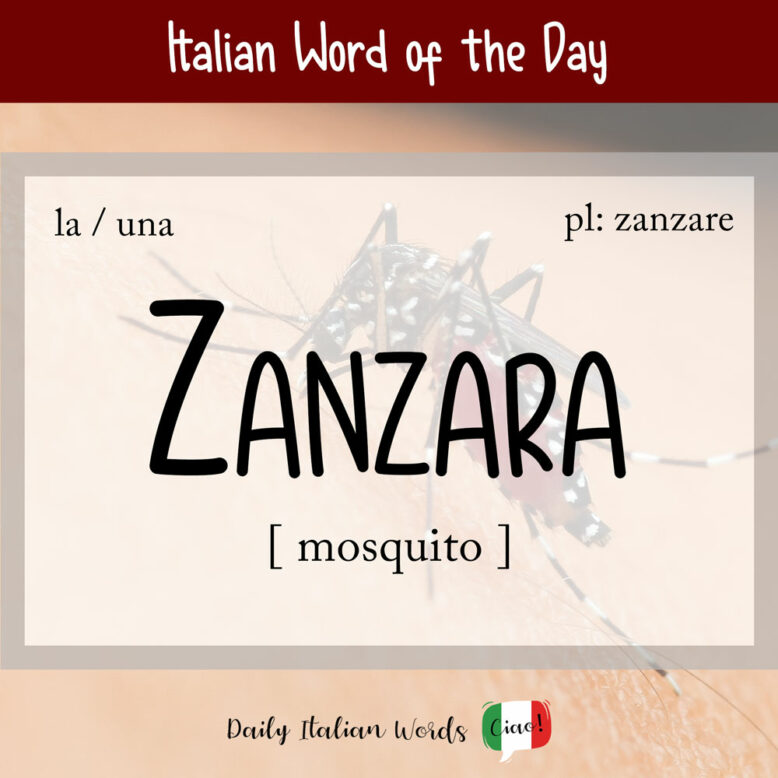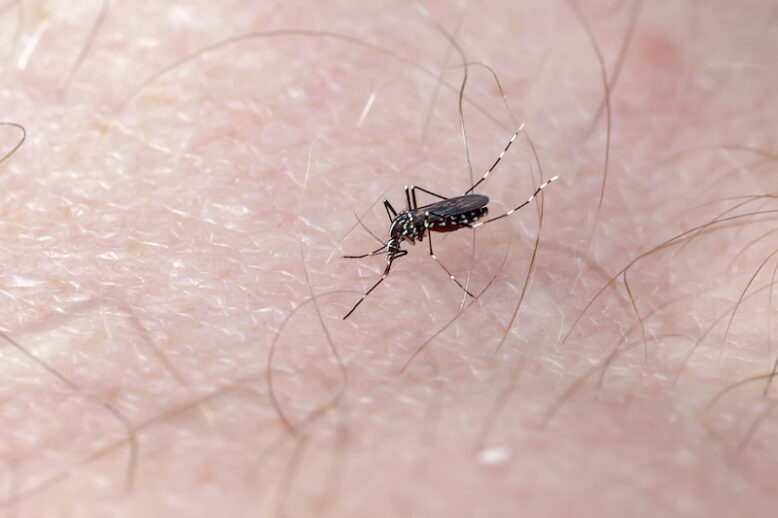The Italian word for that pesky insect whose high-pitched buzzing is enough to drive even the most patient of people to the brink of madness is zanzara (mosquito). It comes from the late Latin zinzala which has onomatopoeic origins.
/ẓan·ẓà·ra/

Zanzara is a feminine noun, so it takes the following definite and indefinite articles:
la zanzara
the mosquito
una zanzara
a mosquito
le zanzare
the mosquitos
(delle) zanzare
(some) mosquitoes
There are more than 3,000 species of mosquitoes in existence, but the most well-known include:
- zanzara comune = common house mosquito
- zanzara della febbre gialla = yellow-fever mosquito
- zanzara tigre = tiger mosquito
Zanzare are also responsible for the transmission of various diseases, making them even deadlier than most other animals on earth! These diseases include malaria, encephalitis, and dengue fever, just to name a few.
Did you know that…
All punture di zanzara (mosquito bites) are caused by reproducing females? This is because they require protein found in sangue (blood) to reproduce.

Here are a few verbs you might need to use when talking about zanzare:
- ronzare = to buzz
- succhiare il sangue = to suck out blood
- schiacciare = to swat / to squash
- pungere = to sting / to bite
Ahia! La zanzara mi ha punto! Ora sta ronzando intorno a te! Occhio!
Ouch! The mosquito bit me! Now it’s buzzing around you! Careful!
Unsurprisingly zanzara has taken on the figurative meaning of “pest“. What’s more, if someone has an annoyingly high-pitched voice that resembles that of the mosquito, you can say they have a vocina da zanzara (lit. “little mosquito voice”).
Sei proprio una zanzara!
You’re a real pest!
Heather Broster is a graduate with honours in linguistics from the University of Western Ontario. She is an aspiring polyglot, proficient in English and Italian, as well as Japanese, Welsh, and French to varying degrees of fluency. Originally from Toronto, Heather has resided in various countries, notably Italy for a period of six years. Her primary focus lies in the fields of language acquisition, education, and bilingual instruction.


